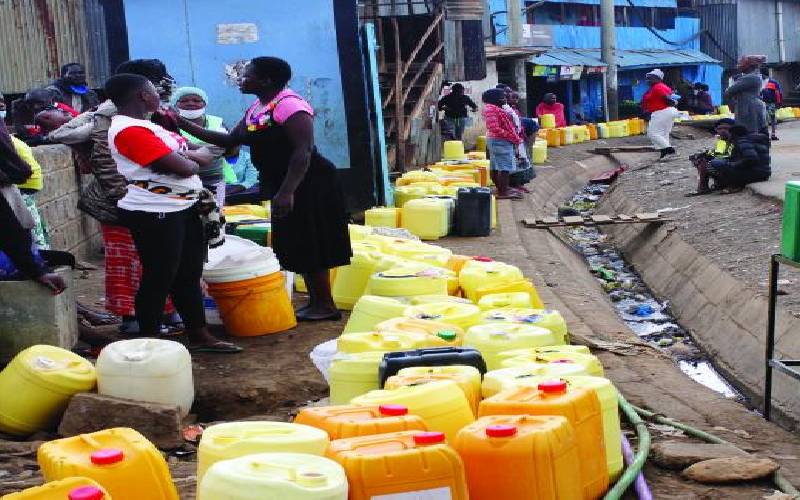×
The Standard e-Paper
Fearless, Trusted News

Residents Kibra queue to fetch water on May 16, 2020. Kenya needs to embrace social entrepreneurship to build a more equal society. [Collins Kweyu, Standard]
The Covid-19 pandemic illuminates one stark reality: a majority of Kenyans live below the poverty line, concentrated in rural and marginal urban areas where they eke out a precarious livelihood. Yet, Kenya has the potential to claim its glory. Poverty